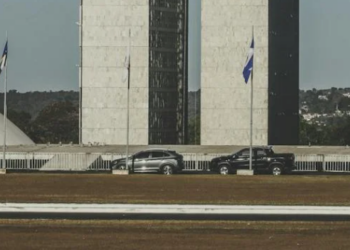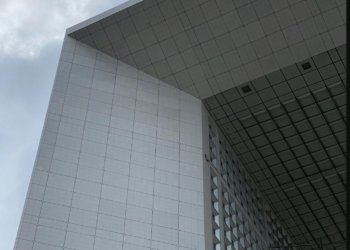by PublicABCP
Translated and reviewed by Matheus Lucas Hebling
The article Challenges in Implementing the Sustainable Development Goals in West Africa, written by Dauda Uali (UFRGS), Stephani dos Santos (UFRGS), and Luizinho Jorge Cá (UFRGS), addresses the complexity of applying the Sustainable Development Goals (SDGs) in one of the most peripheral regions of the Global South. With the growing impact of human development and the centrality of sustainability in contemporary debates, West Africa emerges as an emblematic case of structural challenges that hinder the implementation of these goals.
The study focuses specifically on SDG 16, which seeks to promote peaceful and inclusive societies, ensure access to justice, and build effective institutions. To that end, the authors employed both quantitative and qualitative approaches, based on data drawn from institutional reports, scientific articles, and documents related to SDG implementation in the region.
Among the main obstacles identified are widespread violence, fragile democratic institutions, and the political interference of foreign powers. These factors, combined with the region’s political and economic instability, create a complex scenario that impedes progress toward sustainable development. The authors highlight the need for context-specific approaches that take into account the particularities of peripheral countries to overcome these challenges.
The study emphasizes the importance of strengthening democratic institutions and promoting peace as essential conditions for sustainable development in West Africa. The consolidation of democracy is fundamental to advancing climate and social initiatives, especially in a region marked by coups d’état and chronic instability. Moreover, the authors argue that overcoming these challenges requires coordinated action among governments, international organizations, and civil society.
They also point to the need to reduce foreign political interference, which contributes to regional instability, and to invest in funding sources that support regional integration and sustainable development. Finally, the research underscores the importance of policies that foster social inclusion and climate resilience, while accounting for the region’s unique economic and environmental characteristics.
This article contributes to the global debate on the implementation of the SDGs in peripheral regions. By identifying the main obstacles faced by West Africa, the study offers valuable insights for designing more effective policies aligned with the goals of the 2030 Agenda. It reinforces the need for locally adapted strategies, particularly in contexts marked by political and economic instability.
Author Profiles
Dauda Uali is a PhD candidate in Political Science at the Federal University of Rio Grande do Sul (UFRGS). He holds a Master’s degree in Political Science from UFRGS and a Bachelor’s degree in Social Sciences from the University for International Integration of the Afro-Brazilian Lusophony (UNILAB).
Stephani dos Santos is a PhD candidate in Political Science at the Federal University of Rio Grande do Sul (UFRGS). She holds a Master’s degree in Political Science from UFRGS and a Bachelor’s degree in International Relations from the University of the Sacred Heart (UNISAGRADO).
Luizinho Jorge Cá is a PhD candidate in Political Science at the Federal University of Rio Grande do Sul (UFRGS). He holds a Master’s degree in Political Science from UFRGS and a Bachelor’s degree in Sociology from the University for International Integration of the Afro-Brazilian Lusophony (UNILAB).
Technical Information
Title: Challenges in Implementing the Sustainable Development Goals in West Africa
Authors: Dauda Uali, Stephani dos Santos, and Luizinho Jorge Cá
Year: 2024
Published in: Boletín Mirando al Sur No. 3, Universidad Nacional del Sur (Argentina)








